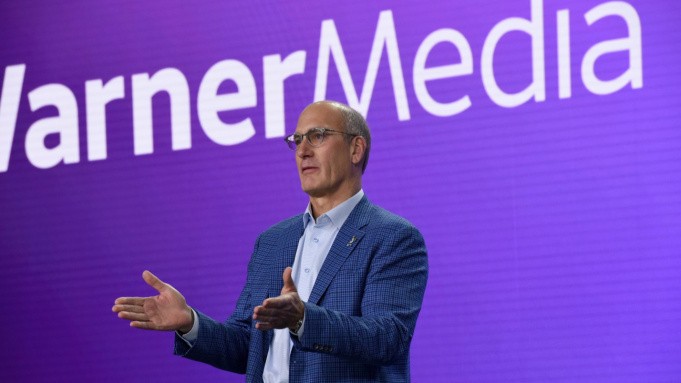
A couple days ago, I was talking to a friend about the Streaming Wars, and how, up to a couple weeks ago, it appeared that Netflix had won it just by getting such a huge head start. This was before the bombshell news that AT&T was merging WarnerMedia with Discovery, thus turning the whole thing on its head, and possibly becoming a genuine gift to consumers of content.
For a long time, I thought Netflix was just spending itself into oblivion, and there was no way it could continue. Billions of dollars outlaid on content, deepening a debt that seemed insurmountable, I was not alone in believing that the end for Netflix was not too far off. That, or it was setting itself up to be acquired by Amazon or Apple. Maybe even Google. Something like that, one of these near-trillion dollar behemoths that could take on Netflix’s debt without blinking an eye.
But the thing is, Netlfix saw the future of Hollywood so much earlier than anyone else, and thus built a lead so enormous over everyone else, the amount of its debt became irrelevant. Consumers are entrenched at Netflix and not inclined to give it up. There are too many things to watch for too many people, endless hours of entertainment for folks like my parents, who love their British and French detective stories; my niece and nephews, who love the children’s programming that extends from toddlers to teens; and me, who likes a wide array of things and consumes enough of it to annoy my fiancée.
The thing that Netflix realized pretty early on was that, in this new age of clicking a button and getting to watch something on your TV, computer screen, tablet, or phone, the whole concept of time slots was outdated nonsense. People were initially confused about when and how they could watch a Netflix show, conditioned — programmed, even (and yes, the pun was intended) — as they were to expect a show to come on at a given time of day. With that new understanding that they could watch it at 3 pm or 3 am or any time in between, the whole paradigm shifted and, with it, the concept of how a network or service sets its schedule.
In fact, Netflix learned, along with the rest of us, that a schedule was now obsolete. The only problem with that, though, was that the service then had to essentially offer a near infinite number of hours of programming. Hence the need to keep growing and growing, exponentially at times, to the point where a good number of us thought they’d gotten more than a bit out over their skis. What we clearly didn’t take into account, though, was how important that head start really was.
Disney+ has done a good job of planting its flag, of course, what with the Disney, Marvel, Lucasfilm, and Pixar catalogs, and Amazon’s library is pretty impressive, too. Hulu is a favorite, Apple TV+ is making inroads, and HBO Max’s first year was quite successful, but the clearance of those services don’t compare with that of Netflix. Disney+ is, I think, gaining, but it’s still a pretty sizable distance.
But now, with this new merger, the landscape shifts again. Netflix owns a lot of great stuff, even if it’s lost The Office to Peacock (which also has Parks and Recreation, hence it gets my five beans a month), but it doesn’t have HBO and the Warner Bros. and DC libraries, and Cartoon Network, and Adult Swim, and Cinemax, and CNN, and TBS, and TNT, and HGTV, and the Food Network, and TLC, and the Oprah Winfrey Network, and Animal Planet, and the Discovery Channel. That’s a pretty impressive list, and only one place has it. That would be the new megalopoliptic enterprise that will be showing up on our devices some time in 2022.
We don’t yet know what this new company is going to be called, nor do we know yet what will happen to HBO Max or Discovery+, though neither is going to be vanishing off your Roku any time soon. It does seem probable that whatever the new entity is will consume those services into itself to create a larger, singular behemoth. Then again, Disney owns Hulu but has left that as a standalone service, separate from Disney+. Of course, that exists in North America as an adult alternative to the Disney brand, and Warner doesn’t have the same handicap of being identified so closely with children’s programming. Thus, all of it under a single banner makes more sense. Or, barring that, bundling it the way Disney+, Hulu and ESPN+ are offered together for a lower price than it would cost to stream them separately.
Of the two options, the former seems far likelier, just for simplicity’s sake. If you’re David Zaslav, the CEO of the new enterprise, why wouldn’t you want your subscribers to congregate in one place to get what they were looking for? Why make them shift from one app to another? No one is going to be hiring me to run a streaming service any time soon, but as someone who subscribes to a bunch of them, I know that it would certainly be a lot easier to just click through the options of one service instead of having to bounce around.
An interesting wrinkle in this is that HBO Max just introduced another, cheaper option for consumers who don’t want to pay the 15 bucks each month for the service — full disclosure, I get it for free because I am a customer of Spectrum cable. Now, for just a tenner, you can get it with ads. It’s a smart play to get more subscribers who are already in on at least a few of the other services, and who will then be ripe for upgrading to DiscoverWarner, or whatever the new one is called.
That’s something, by the way, that I don’t see covered enough these days: the number of services any average person might have at a given time. Personally, I have seven, plus a couple that come with the cable bundle, like Showtime Anytime. But then, I work in and write about the industry, so for me they’re all business purchases. Most people aren’t so lucky, and I know plenty who draw the line at three or four of them.
I think it’s safe to say that, when DiscoverWarner — I’m just going to call it that until I’m told otherwise — drops, it’ll immediately enter most people’s repertoire. The volume of material is just too vast, covers too many demographics and interests, to be ignored. The question is, which other service might get bumped by its arrival?
Almost certainly, the answer to that question will not be Netflix, and DiscoverWarner might not actually surpass it in the size of its subscriber base. That said, it’s hard to believe the new kid on the block won’t give the elder statesman a run for its money, not to mention for yours.
 Neil Turitz is a journalist, essayist, author, and filmmaker who has worked in and written about Hollywood for nearly 25 years, though he has never lived there. These days, he splits his time between New York City and the Berkshires. He’s not on Twitter, but you can find him on Instagram @6wordreviews.
Neil Turitz is a journalist, essayist, author, and filmmaker who has worked in and written about Hollywood for nearly 25 years, though he has never lived there. These days, he splits his time between New York City and the Berkshires. He’s not on Twitter, but you can find him on Instagram @6wordreviews.
You can read a new installation of The Accidental Turitz every Wednesday.





